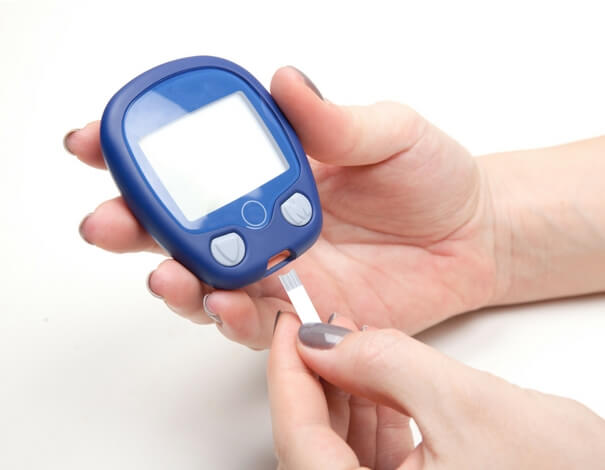Diabetes and Foot Care
Foot care is an important aspect of diabetes, one that is often overlooked. Did you know that 70% of lower limb amputations in Canada are due to diabetes? Continue reading to find out why and how to take good care of your feet.Effect of diabetes on nerves and small blood vessels
Over time, diabetes can damage nerves, especially those in the legs and feet. This is known as diabetic neuropathy.
Diabetic neuropathy can cause various symptoms:
- Tingling (a feeling of being continuously pricked with a needle)
- Numbness
- Sharp, shooting pains
- Burning sensation (in the absence of heat)
- Absence or loss of feeling in limbs
Since diabetic neuropathy leads to a partial or total loss of sensitivity, especially in the feet, diabetics tend not to perceive pain, temperature variations, and wounds as well as other people. This means that cuts and sores may go unnoticed.
Blood circulation may also be less efficient in those with diabetes, which can impede healing. As a result, small wounds can quickly become infected and difficult to treat.
Since feet are particularly susceptible to small cuts and sores, which can go unnoticed in people suffering from neuropathy, and given that diabetes slows the healing process, it is all the more important to pay special attention to your feet if you are diabetic!
How to prevent diabetic neuropathy
While there is no treatment for diabetic neuropathy, it is possible to delay or slow its onset by treating diabetes properly. This can be done by sticking to your treatment to keep your blood sugar levels within the target range and by adopting a healthy lifestyle:
- Eat a healthy diet
- Be physically active
- Achieve and maintain a healthy weight
- Quit smoking (if you’re a smoker)
Foot care
It is crucial that you examine your feet daily to quickly detect any cuts and sores and avoid any wounds from worsening. Here are a few tips:
- Examine your feet and toes every day in good light. Use a mirror if need be.
- Clean your feet at least once a day with warm water and gentle soap. Test water temperature with your elbow. Dry feet thoroughly, including between your toes.
- Check for any blisters, cuts, scratches, and redness on your feet and treat them promptly.
- Apply a fragrance-free moisturizing lotion if the skin on your feet is dry. Do not apply between toes.
- Cut toe nails regularly. Disinfect tools with rubbing alcohol before use and avoid sharing with other people.
- Do not apply heat pads or very hot compresses (hot water bottle) directly to feet.
- Consult your physician, pharmacist, or podiatrist before using any products to remove calluses or corns on your feet.
- Avoid walking barefoot, especially in public places like pools, showers, or spas.
If you have a sore on your foot, clean the wound with water and gentle soap once or twice daily. Apply antibiotic ointment and a dry bandage. Keep an eye out for signs of infection like swelling and redness, or any discharge or unpleasant odour from the wound. If any of these symptoms appear, consult your doctor or podiatrist immediately.
Consult a podiatrist
A podiatrist is a healthcare professional who specializes in foot care. Diabetics should consult a podiatrist at least once a year. Your podiatrist can recognize signs of poor blood circulation, evaluate your posture, and identify any pressure points on your feet that could lead to wounds. They can also recommend appropriate footwear and provide orthotics to improve your foot position. You should also consult a podiatrist for treatment of corns or calluses.Choose the appropriate footwear
Choosing a comfortable pair of shoes is important for preventing foot injuries. Shop for shoes in the late afternoon as feet tend to be more swollen at that time of day. Shoes should be soft and well fitted. Women should avoid wearing high heels.Opt for cotton socks with no tight elastic around the top (to avoid compressing legs). In cold weather, wool socks can be a good option.
Role of the pharmacist
When diabetes is properly controlled, this can help delay or prevent the onset of complications like diabetic neuropathy and resulting foot problems. To control diabetes, it is important to follow your treatment as prescribed.Your pharmacist is a readily accessible healthcare professional who is there to provide advice on your medications and address any questions or concerns you have about the disease, including about foot care. Consult them!
The information contained herein is provided for informational purposes only and is not intended to provide complete information on the subject matter or to replace the advice of a health professional. This information does not constitute medical consultation, diagnosis or opinion and should not be interpreted as such. Please consult your health care provider if you have any questions about your health, medications or treatment.




